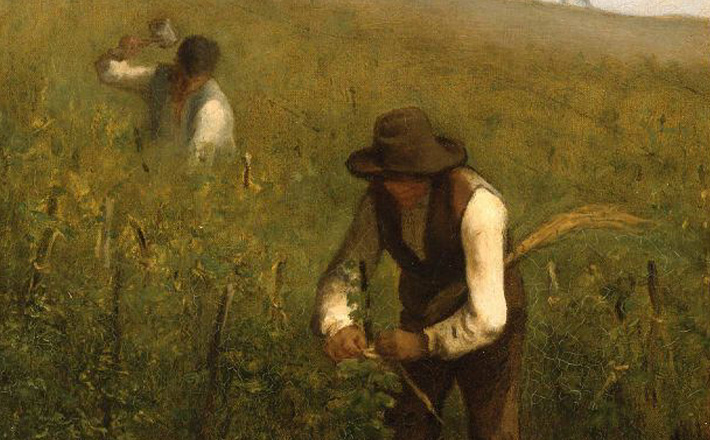Commentary on Psalm 82:1-8
“The gods may be crazy . . . but they are definitely unjust!”
Psalm 82 is the shortest of the psalms I have commented on these four weeks, but it is far and away the most difficult to interpret. The volume of scholarly literature is enormous, and not simply because scholars like to get published. The interpretive challenges are real, but the reward for engaging them is substantial.
Pastors and worship leaders who tackle Psalm 82 for this Sunday will be blessed by one of the most theologically profound texts in the Psalter, and perhaps in the whole Bible.1 There really is something here for everyone: questions about the origins of Israel’s religion, connections to the prophetic witness for justice, affirmation of God’s involvement in human history, and links to the theology of the New Testament.
For these reasons, one is hard-pressed to know where to begin and end the exegetical journey, much less the eventual homiletical product. The good news is that while interpreters sharply disagree over the background and meaning of the Lord’s relationship with the “gods” of Psalm 82, they generally agree on the eventual destination — namely, that the one, true God is unfailingly committed to justice for the most vulnerable of earth’s inhabitants.
Therefore, my advice is that sermons based on this psalm should inform the congregation about the possible strands of meaning without feeling the need to tie up all their loose ends.2 The psalm seems to invite this holistic view based on its consistent poetical use of sounds and wordplay and by a carefully ordered structure:
A God stands and judges in the assembly of the gods (verse 1)
B The gods are confronted over their injustice (verses 2-4)
C The chaos left by the gods is described (verse 5)
B’ The gods are confronted with their mortality (verses 6-7)
A’ God is asked to rise in the assembly and judge the earth (verse 8)3
The structural coherence of the poem’s final form encourages us to draw several themes together in a developing portrait of God’s desire for a just world.
First, the psalm asserts the supreme authority of God over every supernatural power. A major interpretive crux of Psalm 82 has been the identity of “the gods” in verse 1b, a literal translation from the Hebrew ’elohim. This word, of course, can be taken in the singular (“God”) as in the first line of the psalm or in the plural (“gods”) as in the second line of the psalm. Over 2,000 years of biblical interpretation have witnessed at least four major understandings of the term:
a) Rabbinic interpretation tended to see the “gods” as the Israelite community that received the law at Sinai. This evokes Jesus’ allusion to “those to whom the word of God came” in John 10:35.4
b) From patristic times, the “gods” were thought to be human judges, based on possible readings of Exodus 21:6 and 22:8.5
c) The Old Testament occasionally uses the term, “sons of God” to refer to angelic beings (Genesis 6:4; Job 1:6), some of whom appear to rule as princes over nations (Daniel 10:13, 20-21).6
d) Closely related to the angelic interpretation is one based on ancient Near Eastern mythology — namely that “gods” refers to an assembly of divine beings ruled over by God, who is supreme creator and sovereign. These divine beings were appointed by God to be responsible for the just rule of the nations, as in Deuteronomy 32:8, “When the Most High apportioned the nations, when he divided humankind, he fixed the boundaries of the peoples according to the number of the gods.”
While this view may be the most difficult for traditional congregations to grasp, it seems to be the view that best interprets the psalm in its original context and one that exalts the lordship of Israel’s God more than other views.
Second, the psalm’s ultimate subject matter is “the weak and the orphan . . . the lowly and the destitute . . . and the needy” (verses 3-4), who in all likelihood are the ones suffering from a lack of knowledge and understanding (verse 5).7 Their suffering is at the heart of the psalm and of the God whose judgment is invoked by verse 8. God’s indignation is compounded because the unjust administration of the “gods” has directly benefitted “the wicked,” who serve as the human tormentors of the sufferers delivered into their hands (verses 2 & 4).
The cosmic implications of injustice are great, given the shaking of the earth’s foundations. As Brent Strawn writes, “In this highly artful and poetic way, the poem unites heaven and earth showing how what is done in heaven’s highest realms affects earth’s lowliest denizens.”8
Third, uniting the message of points one and two, the psalm’s theology reaches forward into the biblical drama, as New Testament authors recognized Jesus as the rightful Lord, the Son of God himself who will ultimately judge all matters. In spite of the complicated exegesis of John 10’s use of Psalm 82, there is no question that Jesus considers himself God’s Son who “is doing the works of [his] Father” (John 10:37).
The ministry of the Incarnate Lord is God’s complete and final answer to the challenge of verse 8, that God would respond to injustice among the inhabitants of his creation by himself rising to enact justice on behalf of victims of the wicked. Our belief that “in Christ God was reconciling the world to himself” (2 Corinthians 5:19) is the good news we proclaim; his are the good works we perform.
1 J. Clinton McCann, “The Single Most Important Text in the Entire Bible: Toward a Theology of the Psalms” in Soundings in the Theology of the Psalms: Perspectives and Methods in Contemporary Scholarship, ed. Rolf A. Jacobson (Minneapolis: Fortress Press, 2011), 63-75.
2 Brent A. Strawn, “The Poetics of Psalm 82: Three Critical Notes along with a Plea for the Poetic,” Revue Biblique (forthcoming); used with the author’s permission.
3 This structure is based on Lowell K. Handy, “Sounds, Words and Meanings in Psalm 82” JSOT 47 (1990): 51-66.
4 For a good review of this and all the interpretations, see Jerome H. Neyrey, “’I Said: You are Gods’: Psalm 82:6 and John 10,” JBL 108 (1989): 647-663.
5 Konrad Schaefer, Psalms. Berit Olam (Collegeville, MN: The Liturgical Press, 2001).
6 For a discussion of this, see Craig C. Broyles, Psalms. NIBC (Peabody, MA: Hendrickson Publishers, 1999), 336.
7 Strawn, “The Poetics of Psalm 82.”
8 Ibid.


August 18, 2013